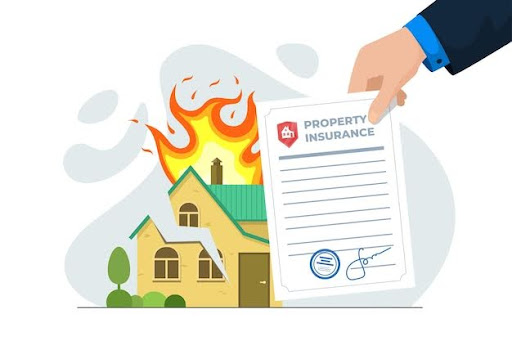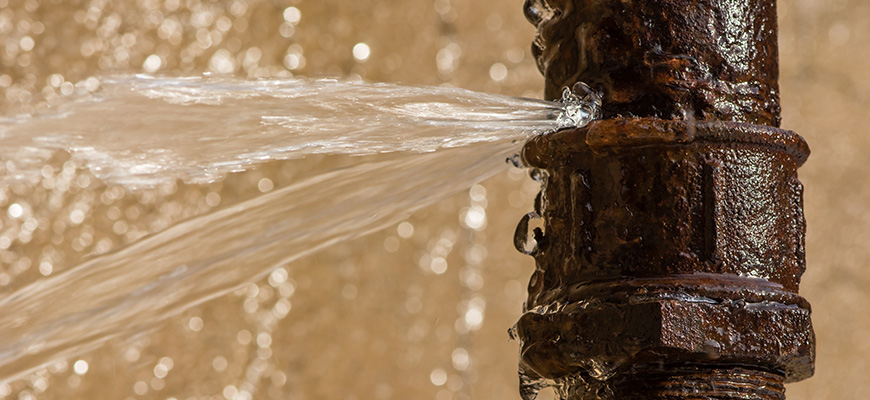When it comes to the plumbing in your home, there’s more to it than just fixing leaks and unclogging drains. In fact, ensuring that you have the necessary permits for any plumbing work is essential for protecting your investment and ensuring the safety of your property.
Permits may seem like a hassle, but they serve a crucial purpose. They ensure that the plumbing work being done in your home meets the necessary building codes and regulations. This not only helps to safeguard your investment but also ensures that the work is done properly and to a high standard.
By obtaining the required permits for your home plumbing projects, you not only demonstrate your commitment to following the rules, but you also gain peace of mind knowing that the work is being carried out by professional and licensed plumbers.
In this article, we will explore the importance of permits for home plumbing in more detail. We will discuss the benefits of obtaining permits, outline the potential risks of not doing so, and provide useful tips on how to navigate the permit application process.
Don’t underestimate the significance of permits when it comes to your home plumbing – they are an essential component of maintaining the integrity and value of your property.
The role of permits in protecting your investment
When it comes to home improvement projects, it’s easy to get caught up in the excitement of transforming your space. However, it’s important not to overlook the necessary permits required for plumbing work. These permits play a crucial role in protecting your investment.
One of the main reasons permits are required is to ensure that the plumbing work being done meets the necessary building codes and regulations. Building codes are put in place to ensure the safety and structural integrity of your home. By obtaining permits, you are showing that the work will be done in compliance with these codes.
Additionally, permits provide a level of accountability. When a permit is obtained, it typically involves an inspection process. This means that a qualified inspector will review the work being done to ensure it meets the necessary standards. This helps to prevent potential issues down the line and provides peace of mind knowing that the work is being carried out to a high standard.
Furthermore, having the proper permits in place can also protect you legally. If you were to sell your home and it is discovered that plumbing work was done without the necessary permits, it could lead to complications and even legal issues. By obtaining permits for any plumbing work, you are ensuring that everything is above board and in compliance with regulations.
In summary, permits play a vital role in protecting your investment. They ensure that the plumbing work is done in compliance with building codes, provide accountability through inspections, and protect you legally when selling your property.
Ensuring safety through proper permits
While protecting your investment is important, ensuring the safety of your property and its occupants is paramount. This is where proper permits for home plumbing come into play.
Building codes and regulations exist to ensure that the plumbing systems in homes are installed correctly and safely. Plumbing work that is not done to code can lead to a variety of issues, including leaks, water damage, and even health hazards.
By obtaining the necessary permits, you are ensuring that the plumbing work is being carried out by licensed professionals who are knowledgeable about the specific requirements and standards. This reduces the risk of common plumbing problems and ensures that your home’s plumbing system is safe and reliable.
Furthermore, permits often require inspections at various stages of the plumbing project. These inspections help to catch any potential issues or mistakes early on, before they become major problems. Inspectors can identify faulty installations, incorrect materials, or any other concerns that may compromise the safety of your plumbing system.
In summary, proper permits for home plumbing are essential for ensuring the safety of your property and its occupants. By following building codes and regulations, you can rest assured that the plumbing work is being done correctly and that your home’s plumbing system is safe and reliable.
Common plumbing projects that require permits
Now that we understand the importance of permits for home plumbing, let’s take a closer look at some common plumbing projects that typically require permits.
- New Construction or Major Renovations: If you are building a new home or undergoing major renovations that involve plumbing work, permits are almost always required. This includes installing new water lines, drain lines, or fixtures.
- Water Heater Installation: Replacing or installing a new water heater often requires a permit. This is because water heaters involve gas or electrical connections, which need to be installed correctly and safely.
- Bathroom or Kitchen Remodels: When remodeling your bathroom or kitchen, plumbing work is often involved. This can include moving or adding water supply lines, drain lines, or fixtures. Permits are typically required to ensure that the work is done to code.
- Sewer Line Repairs or Replacements: Repairing or replacing sewer lines is a major plumbing project that requires permits. This is due to the potential impact on the public sewer system and the need to ensure that the work is done correctly.
It’s important to note that permit requirements can vary depending on your location and the specific project. It’s always best to check with your local building department to determine the permits required for your specific plumbing project.
The cost of plumbing permits
One common concern when it comes to obtaining permits for home plumbing projects is the cost. While permit fees can vary depending on your location and the scope of the project, it’s important to consider the long-term benefits and potential savings that come with proper permits.
The cost of permits is typically a small percentage of the overall project cost. It’s important to view this as an investment in the quality and safety of the plumbing work being done. By ensuring that the work is done to code and meets the necessary standards, you can avoid costly repairs or issues down the line.
Additionally, proper permits can potentially increase the value of your home. When selling a property, buyers often look for evidence of permits for any major renovations or plumbing work. Having the necessary permits in place can provide potential buyers with peace of mind and may even increase the value of your home.
It’s also worth noting that not obtaining permits can result in penalties or fines if discovered. These fines can far exceed the cost of the initial permits, making it even more important to obtain them from the start.
In summary, while there may be a cost associated with obtaining permits for home plumbing projects, it’s important to view this as an investment in the safety and value of your property. The potential long-term savings and increased property value outweigh the initial cost of permits.
Consequences of not obtaining permits
Now that we understand the benefits and importance of obtaining permits for home plumbing, let’s explore the potential risks and consequences of not doing so.
- Safety Risks: Plumbing work that is not done to code can pose significant safety risks. Faulty installations, incorrect materials, or improper connections can lead to leaks, water damage, or even health hazards. Without proper permits and inspections, there is no guarantee that the work meets the necessary safety standards.
- Legal Issues: Not obtaining permits for plumbing work can have legal ramifications, especially when selling your property. If it is discovered that plumbing work was done without permits, it can complicate the selling process and potentially result in legal disputes. This can lead to delays, additional costs, and even the loss of a sale.
- Voided Insurance Coverage: In some cases, insurance companies may refuse to cover damages resulting from unpermitted plumbing work. This means that if a plumbing issue arises due to work that was not done to code, you may be left financially responsible for repairs or damages.
- Complications with Home Inspections: When it comes time to sell your property, home inspections are typically conducted. If unpermitted plumbing work is discovered during the inspection, it can raise red flags for potential buyers. This can lead to negotiations, delays, or even the loss of a sale.
In summary, not obtaining permits for home plumbing projects can result in safety risks, legal issues, voided insurance coverage, and complications during home inspections. It’s essential to follow the proper permit process to avoid these potential consequences.
Hiring a licensed plumber for permit-related projects
Navigating the permit application process for home plumbing projects can seem daunting, but hiring a licensed plumber can make the process much smoother.
Licensed plumbers are knowledgeable about the necessary permits and requirements for different types of plumbing work. They can guide you through the process, ensuring that all the proper permits are obtained and that the work is done to code.
When hiring a licensed plumber, it’s important to ask about their experience with permit-related projects. They should be familiar with the permit application process and have a track record of successfully obtaining permits for their clients.
Additionally, a licensed plumber will have the necessary skills and expertise to complete the plumbing work to a high standard. This ensures that the work is done correctly and safely, giving you peace of mind knowing that your investment is protected.
In summary, hiring a licensed plumber for permit-related projects is highly recommended. They can navigate the permit application process, ensure that all the necessary permits are obtained, and complete the plumbing work to a high standard.
Conclusion: The importance of permits for home plumbing
In conclusion, obtaining permits for home plumbing projects is essential for protecting your investment and ensuring the safety of your property. Permits ensure that the plumbing work is done to code, provide accountability through inspections, and protect you legally.
By obtaining the necessary permits, you demonstrate your commitment to following the rules and gain peace of mind knowing that the work is being carried out by professional and licensed plumbers.
While there may be a cost associated with permits, it’s important to view this as an investment in the quality and safety of the plumbing work being done. The potential long-term savings and increased property value outweigh the initial cost of permits.
Don’t underestimate the significance of permits when it comes to your home plumbing. They are an essential component of maintaining the integrity and value of your property. So, next time you embark on a plumbing project, make sure to obtain the necessary permits and ensure that the work is done to code.
Image Source: FreeImages


